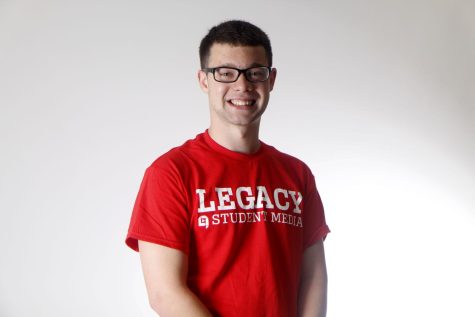There are five minutes remaining for the final section of the PSAT, senior Will Mabe bubbles in the answer for the last questions. He sighs with relief and is thankful he enrolled in a prep class.
In the freshman, sophomore and junior years of high school, MISD offers students the option to take the PSAT. The test prepares students for the SAT, one of the tests many colleges examine for the acceptance process. Mabe and others who passed the PSAT with a high score in their sophomore year were provided an opportunity to take a prep class for one semester. The class helps students earn a scholarship on the PSAT in their junior year. This process provides one extra step towards college preparedness.
“It helped me improve my score astronomically,” Mabe said. “I mean [the class] wasn’t really that difficult either.”
Standardized tests provide colleges and universities specific scores to see what a student can accomplish. From freshman year to junior year, a student will be tasked with the EOC Test. The End Of Course Test challenges scholars to pass an exam to earn course credit. If they fail, then the student must retake the test until they pass. The EOCs are limited to specific courses. Besides credit requirements in high schools, colleges tend to focus on the SAT/ACT. The scores earned on these tests determine acceptance and scholarships. The SAT presents over 150 questions in maths and English, while the ACT contains over 250 questions in all core subjects. In the end, the students choose which test they prefer and the scores to submit. Julie Gross teaches the PSAT Preparation Class with Howard Ritz. They also provide lessons on the SAT and ACT.
“I love when students meet our goals,” Ms. Gross said. “Knowing what to expect is key. If our students know what they are going into then it is not as scary or stressful.”
GoingIvy recommends preparation for college to start as soon as sixth grade, this allows for students to start to think ahead of what they want to pursue. Although, MISD middle schools begin the prep process in eighth grade through the required class Career Pathways. This class gives tips and lessons for college and life. Mabe never put much thought into a specific college when he was younger, but college football led him toward Texas Christan University.
“I’ve been a TCU fan for my entire life,” Mabe said. “My blood bleeds purple.”
The freshman year of high school should be spent in specific extracurricular activities, along with an introduction to organization skills according to AVID and GoingIvy. Electives such as any fine arts, culinary, athletics, etc. provide a pathway for a student to choose a major. The University of Portland says organizations can help prevent stress. These pieces provide a student with their first bits of the college experience. Mabe’s history classes influence him to pursue a pre-law major.
“History is my specialty,” Mabe said. “It’s something I could excel in.”
Sophomore and junior years both offer test requirements for high school and college. GoingIvy suggests enrollment into classes that build on a scholar’s previous years of high school. They also add that a sophomore needs to reflect on their freshman year, while a junior should focus on the SAT/ACT their second semester. SuperTutor provides an extra checklist for juniors.
“The system is just very complex,” Mabe said. “There’s a lot of tedious work you have to do to get through all this stuff and really get to the meat of the whole college prep thing.”
There are a few final steps that colleges advise undergraduates as they enter their senior year. Some colleges provide college visits, the visits may help students finalize their decision on what school fits them. GoingIvy suggests that if students feel confident with their visit and testing scores, they should apply for colleges. Senior Joshua Ipock ranks at the top in his class and continues to look at different colleges with majors in prosthetics. He’s also confident in his test scores and he began to apply to Stanford and the University of Texas Austin.
“It’s all about loving education, loving to learn and working hard in school,” Ipock said. “I’m working hard so that I have a chance to apply.”
Some students may miss steps in their high school career while they prepare for college, but there are still opportunities outside the classroom to become ready. Mabe tries to live a relaxed life with education still in his mind.
“Don’t procrastinate, but take it slow,” Mabe said. “Right now you have all kinds of time. You really don’t even have to declare a major until you’re in college already.”



![Caroline Brown, 2021 Valedictorian, stands beside Dr. Shelly Butler in preparation at the graduation ceremony on June 2. [File Photo]](https://therideronline.com/wp-content/uploads/2021/12/IMG_8953-900x600.jpg)
